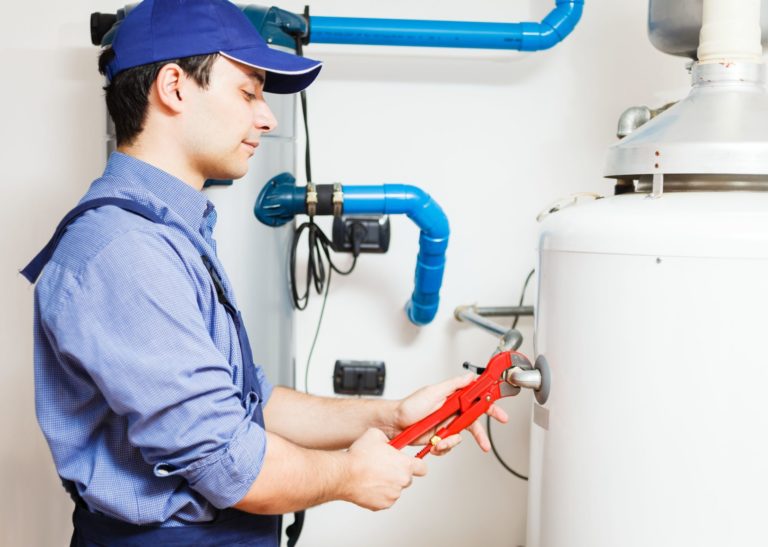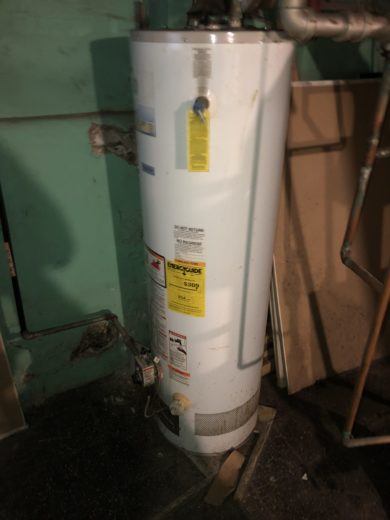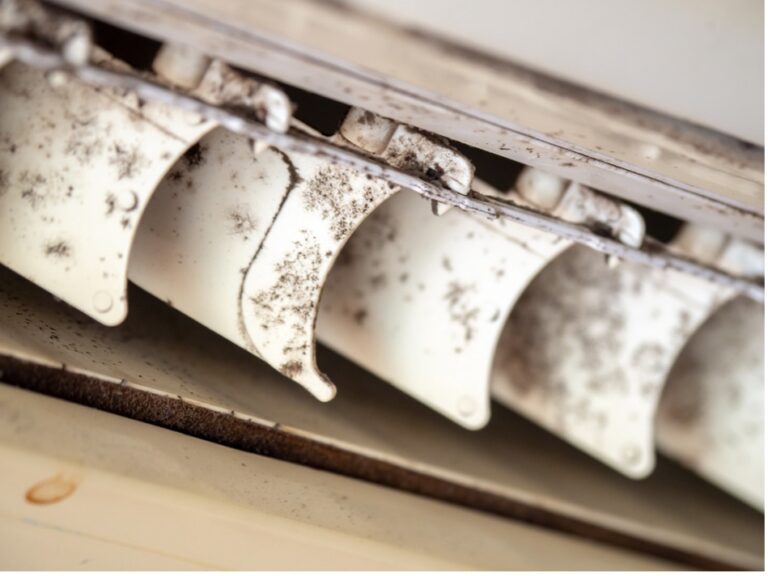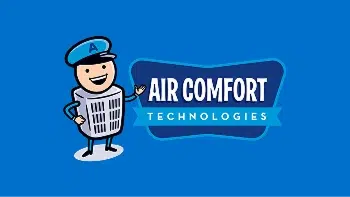Most water heaters last up to 15 years. Once yours reached the ten-year mark, you should watch for signs of wear. You can get the most from your unity with proper maintenance and heading off problems when they’re still small.
In this article, we’ll outline five signs that your water heater has stopped working. We’ll also look at five more warning signs that your appliance is headed for a breakdown. This way, you can get the most from your heater.

Four Signs You May Need A New Water Heater in York, PA
You can also avoid the inconvenience and expense that comes with suddenly having no hot water.
And, call or email Air Comfort Technologies if you notice any of these problems with the hot water in your York, PA home.
Four Signs Your Water Heater Went Out
Four ways to tell your water heater stopped working are:
- Water Is Not Hot Enough
- Water Heats Up Slowly
- Leaks Around The Unit
- Error Message On The Unit
Water Is Not Hot Enough
You may still get hot water, but it’s only lukewarm. When this happens, it’s a sign your appliance is no longer doing its job. At this point, the water in the tank is getting cooler.
Start by checking the temperature settings. It’s always possible someone changed it by accident. If it’s correct, then it’s time to call in a pro.
And remember: You may be able to get through a chilly shower. But, water should be at least 110 degrees for a dishwasher to kill bacteria.
How Long Should An Air Conditioner Run Without Stopping?
Water Heats Up Slowly
A similar concern is when you get hot water, but it takes forever. If you’re running the tap longer than usual to get the temperature you want, it’s time to check for problems. Once again, the problem here is the unit not working as well as it should.
It may have just stopped working or is struggling to keep up. Either way, you’re getting colder water before tapping into the pocket of the tank that’s still warm. And, of course, both these problems lead to the most obvious sign: No hot water.
At this point, your tank fills up, but the appliance doesn’t warm it up at all.
Leaks Around The Unit
A corroded water heater will spring a leak sooner or later. These often start small and may be hard to notice unless you’re inspecting the unit. But, a small opening can become a huge problem very quickly.
A hole in the tank means there’s rust eating away at the metal from the inside. Now, the area around that opening is also weak. Eventually, the pressure from it causes the hole to burst open. Then, dozens of gallons of water spill all over the place.
To spot this, check around the tank for moisture. And, we’ll cover another warning sign a little later.
Error Message On The Unit
Today’s heaters tell you when there’s a problem. To find it, check out the blinking light on the side of the tank. Each model is different. But the speed and frequency of the blinks tell you if the unit is working correctly or not.
And different problems trigger different light patterns. There’s usually a guide printed on the console to tell you what they mean.
What The Blinking Light on Your Water Heater (And What To Do)
You may still get hot water, but these warning signs can mean that’s about to change. Your water heater may be ready for a breakdown if:
- Water Is Smelly Or Discolored
- Unit Makes Strange Noises
- Rusty Water
- Hot Water Runs Out Faster
- Unit Is 15 Years Old Or Older
Smelly or discolored hot water can indicate a few different problems. Ruddy or rusty color could mean a significant problem, and we’ll address that specifically in the next section. But, the other sign to watch for is a rotten egg smell along with discoloration.
That’s usually a sign you have bacteria in the tank. Your system has an anode rod that kills bacteria and removes rust. But, if it’s been, that stuff is building up. Your system will still work, but the water quality can get dangerously low.
Rusty Water

Hot water with a metallic odor or a murky, cloudy, rusty look can mean a few things. First, you could have rusty pipes. Or, there’s mineral buildup inside the unit. But, here’s the big one to watch for: Your water heater has corroded on the inside, and there’s rust in there.
This is often the first sign of a leak. At this stage, you have rust inside the unit. With any luck, it hasn’t eaten through the metal. You likely still need to replace the unit. But, at least, you have a little time to prepare.
And, you’re not dealing with water damage.
Why Does My Air Conditioner Freeze Up?
Hot Water Runs Out Faster
Let’s say you’re getting hot water but not for as long as usual. In this case, the unit is probably still working. But, it’s on the way to failure. If you’re always getting hot water, and it’s always warm enough, then your heater is still warming it.
But, it’s now struggling to keep up with demand. This problem is similar to others we outlined already: getting lukewarm water or cold water taking a long time to heat up. Hot water running out is usually the first step before these more significant concerns.
Unit Is 15 Years Old Or Older
No matter how well you care for your appliances, they’ll break down eventually. If you’ve managed to keep your water heater going for 15 years, congratulations! You’re more than getting your money’s worth.
But, once your unit has been in service for a decade, start preparing to replace it. You may have a while to go, but you don’t want to get taken by surprise. This way, you’re ready financially, and you know what you want for a replacement.
That could be a similar new unit or an upgrade that’s more energy-efficient or offers more features.
Water Heater Repairs And Installation In York, PA
Don’t ignore the warning signs of a water heater problem! Call or email Air Comfort Technologies in York, PA if you notice any of the situations we outlined here. We’ll help you stay comfortable and safe — and help you get the most out of your HVAC equipment.





